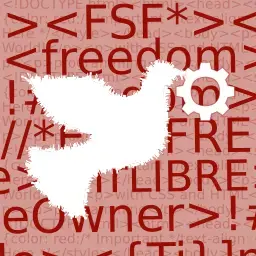- cross-posted to:
- linux@programming.dev
- cross-posted to:
- linux@programming.dev
First Servo, now this. Good times ahead.
@possiblylinux127@lemmy.zip Pretty cool, but what about Servo? Why not work on it instead?
I do wish this was under the GPLv3 but you can’t have it all
I’d love to hear your thoughts on why you feel the GPLv3 is better than the BSD2-clause license LadyBird is using.
GPLv3 is virally open source (copyleft), BSD 2-Clause is not.
GPLv3 ensures free software remains free and contributions cannot be exploited and withheld from the community. BSD2C does not.
GPLv3 is virally open source (copyleft), BSD 2-Clause is not.
Your first statement is patently false and misleading.
Two variants of the license, the New BSD License/Modified BSD License (3-clause), and the Simplified BSD License/FreeBSD License (2-clause) have been verified as GPL-compatible free software licenses by the Free Software Foundation, and have been vetted as open source licenses by the Open Source Initiative. (Wikipedia)
Being “copyleft” is not a requirement for being open source. Maybe you’re thinking of free software. There are differences, but as the FSF is quoted, they are also very similar.
GPLv3 ensures free software remains free and contributions cannot be exploited and withheld from the community. BSD2C does not.
To my understanding, and if I’m wrong I’d love to know why, both GPLv3 and BSD2 both ensure the openness of software. They just go about it differently. GPL (I’m not super versed at v3) basically means any modifications to GPL’d code must also be GPL’d, and source made available; also, if you statically link against other GPL’d code, your code must be GPL’d. Dynamic linking (or linking against LGPL code, like glibc) does not have this requirement.
With BSD code, your only requirement is that the code (or binaries) must remain BSD2. Sure, someone can make modifications and keep them to themselves for fun and profit. But that doesn’t mean the rest of the community has to follow suit. The original code remains open and available with no license modifications. If a company owns BSD2 code, and goes under, the community can simply fork the code and take ownership as they please.
Neither license is perfect, and I’m sure we could find plenty of examples of people/companies that have abused both licenses.
You asked a simple question about “better” which is pretty subjective for whooping out the references along accusations of falsehood.
“virally open source”
Which answered the original question quite succinctly. I wish you would have read more carefully before…
I asked what the OP felt was better about GPLv3.
The person who responded made provably false statements. I know they are false, because I went to look it up; which is outlined in my “[whooped] out references”.
You still don’t read.
Enlighten me; what is it I’m missing?
GPLv3 makes a company publish the source under the same license. That means no Vivaldi, Chrome, Edge or any other spyware ad ridden browsers. I don’t think we need more lock in.
I understand your reasoning, but I think your logic is flawed. If Ladybird is GPLv3, then browsers will continue to use Chromium base which helps the Chrome monopoly. By making it BSD, it will help others adopt it.
We don’t need that much adoption we just need a engine that is capable of not screwing over everyone. We already have plenty of proprietary browsers.
Admittedly BSD may help Ladybug get more funding and development efforts.
Who are “we”?
The privacy and freedom community
Looks like it has a reasonable base. But they are targeting an alpha for early 26?
Oof.
Hey it looks like there is some thought behind this; starting a 501c3 and going from there.
Deep sigh…. Good luck Mr Gorkski
I legitimately thought
501c3was a commit hash before my brain engaged.You…I like you.




